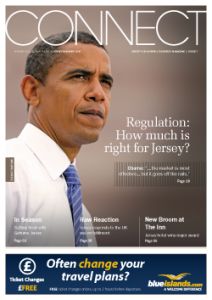
As I write this article, we’ve just heard that the Channel Islands have lost their Court battle against the UK Government to overturn the Chancellor’s decision to shut down Low Value Consignment Relief. The full ramifications are as yet unclear; however it is known that at least 800 jobs are directly at risk, with another 800 indirectly affected. With the number of people actively seeking work at an all time high of around 1,700, the chances of an additional 800 individuals all finding jobs quickly in the current market are extremely slim.
Despite the seriousness of the situation, it’s a time for cool heads, strong leadership and a clear strategy. It’s certainly not a time for playing the blame game and knee-jerk reactions.
So who should do the leading: government or Business? No doubt the call will be: “what is government doing to create jobs?” I believe it should be: “how is government working with businesses to create long term sustainable jobs?” The bottom line is that businesses will create jobs if the environment in which they operate enables them to grow. Creating that environment is I believe the job of government.
The Executive Council of the Jersey Chamber of Commerce was recently invited by the Chief Minister and his team to discuss the key issues of the day, and a full and frank discussion took place. We need more of this type of interaction at the highest levels. It will hugely improve the decision making process and should help to generate the ideas that will ultimately get our economy moving once again.
Ultimately it’s about trust. government has to trust business to deliver jobs and act responsibly. Business, in turn, has to trust government to put in place the infrastructure that will enable businesses to be competitive.
If there’s one thing to be learned from the LVCR debacle it is that ‘Jersey Plc.’ really needs the strongest ‘on the ground’ representation in both London and Brussels, to make sure we are at the heart of the decision making process. If we’re not at the table, we shouldn’t be surprised that the decisions of others are not made with our interests at heart.
At a local level, Jersey is small enough for us all to understand the implications of the linkages between government departments and business; to be nimble enough to adjust to changing economic conditions. At an international level we now have to be equally close to those who seem to have considerable influence over the economic future of Jersey, and so the social wellbeing of its people.
David Warr
President, Jersey Chamber of Commerce